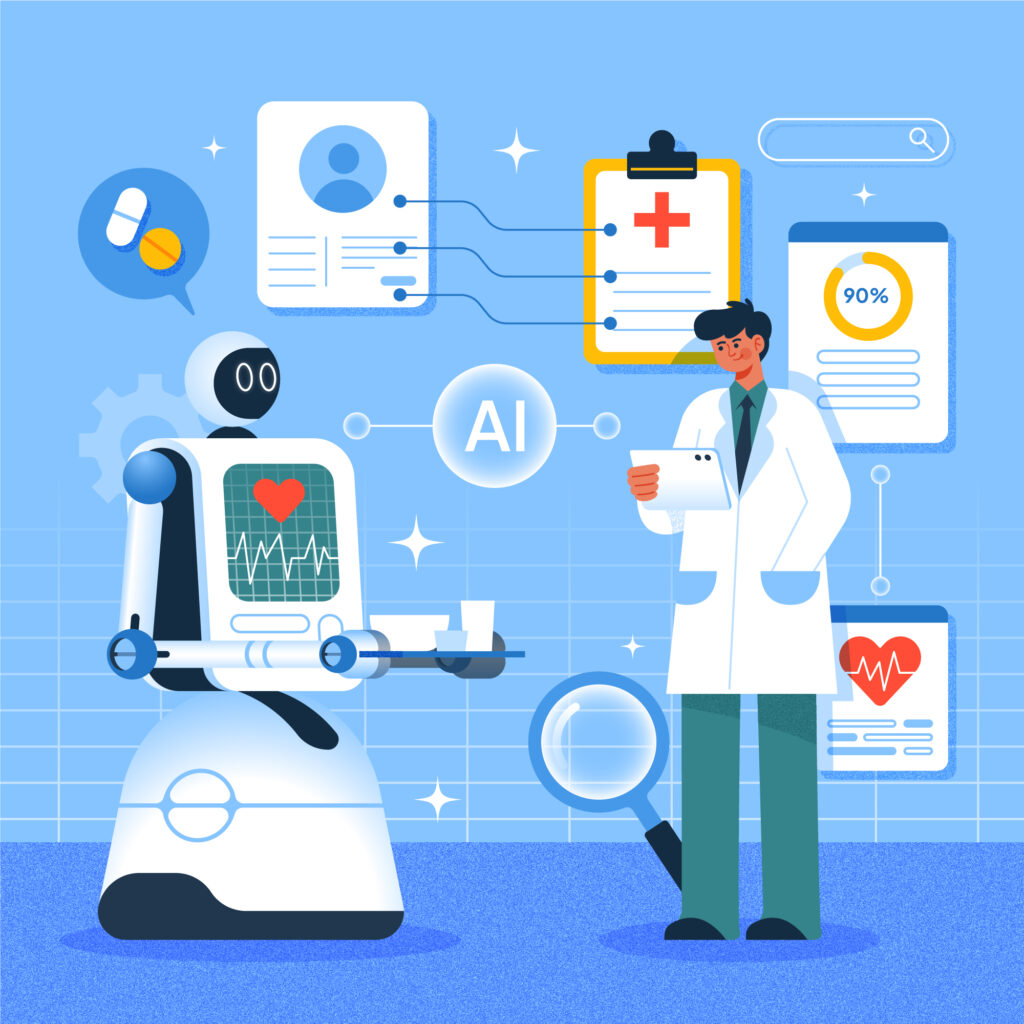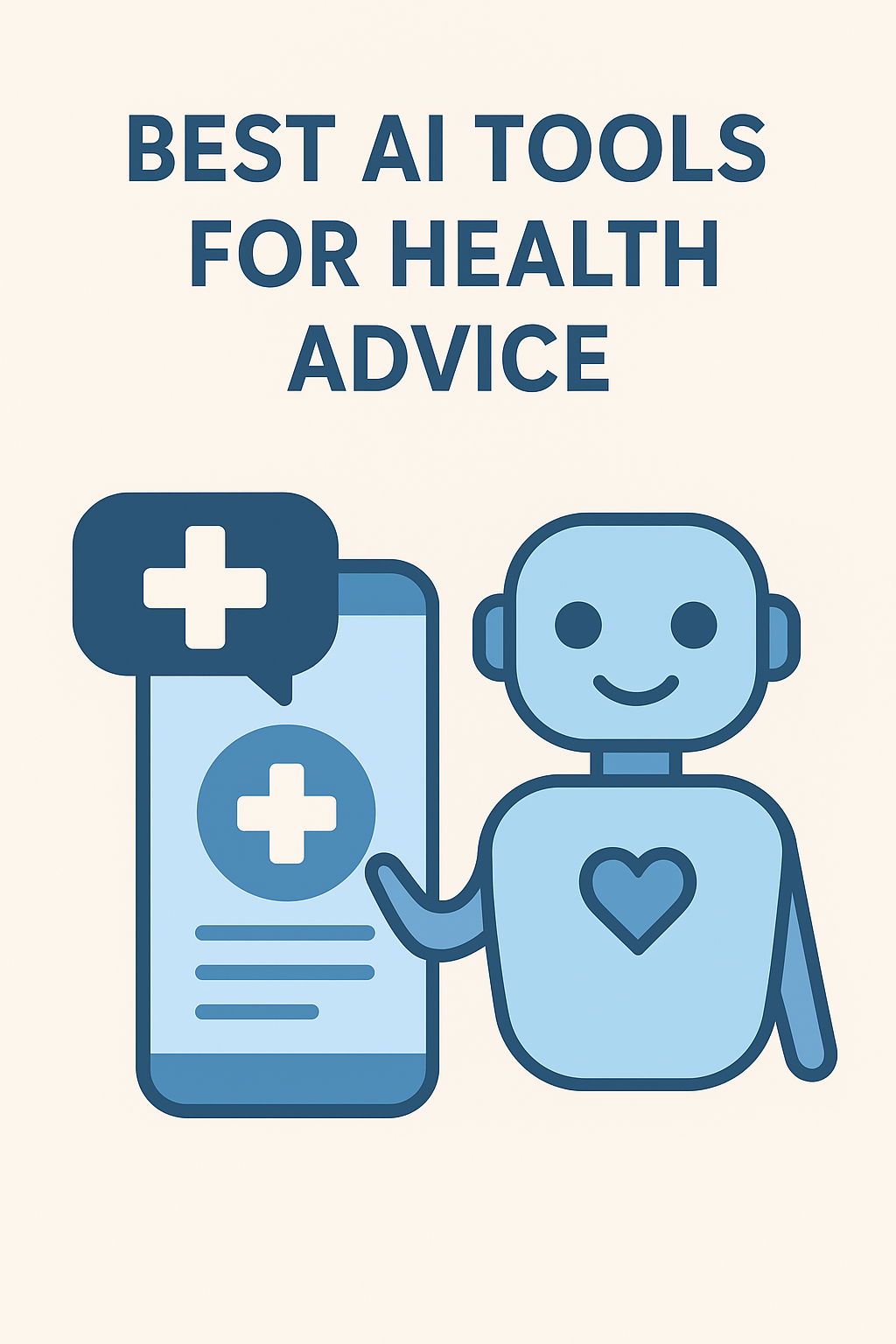Health tools armed with artificial intelligence (AI) are shaping the way in which we take care of our most vital organ on a daily basis – by offering personal, data-driven advice and care in the comfort of our homes. Between chatbots that help diagnose symptoms to wearables that can measure vitals and suggest lifestyle tweaks, AI is allowing people not only to be more informed but also proactive about their health.
These are the sorts of solutions that break down the barriers to healthcare, lower costs, involve leapfrog solutions right now, with sharp improvements based purely on machine learning, predictive analytics, and big data. While we may want to rely on smart tech for every one of our daily needs, understanding what AI tools for health advice are and what they have to offer — and what their potential downsides could be, and how exactly we should choose the best of the AI options out there for our own purposes can help keep users informed and engaged.
What Are AI Tools?
Health Advice AI tools for health advice are software applications or platforms leveraging artificial intelligence—particularly machine learning, natural language processing, and predictive analytics to help people monitor, diagnose, prevent, and manage health-related matters. They can be smartphone apps and web interfaces, or devices built into wearables.
Some are programmed to engage in conversation (such as bots that inquire about symptoms), while others assess live biometric data (like heart rate and patterns of sleep) to offer personalized recommendations. These are meant to be supplementary—to supplement professional medical care.
Benefits and Limitations of AI Tools:
Advantages:-
1. Accessibility & convenience: Get health knowledge on your schedule without an appointment.
2. Personalization: AI customizes advice to make it based on your data patterns which is closer to the effect of more general advice.
3. Early detection: AI can identify anomalous trends (such as arrhythmia, increased temperature) that are worth further examination, which can help us catch things early.
4. Scalability + cost: These tools can get to many users with little marginal cost — good where health care resources are scarce.
5. Data-reinforced discovery: AI is based on how you use it, so it tends to improve with symptom/ risk / response pattern recognition*.
Disadvantages:
1. Consistency and Accuracy consideration: Employing unsound models or training dataset can lead to false negatives/positives.
2. Privacy concerns: Private health information might be probabilistically revealed if it is not well protected or anonymised.
3. Settings: To the extent a user depends on AI to receive and evaluate advice, instead of visiting the appropriate health care provider in a timely manner, he or she may fail to receive the proper diagnosis or care.
4. Low empathy: AI cannot give a level of empathy and comfort that only humans can, even the most sophisticated of comfort may seem fake or inadequate.
5. Regulations and liabilities: Murky oversight and murky responsibility if things go wrong might be an issue.
AI Tools for Health Devices:

AI tools incorporated into health devices span several categories:-
1. Wearables (fitness trackers, smartwatches)
Devices like A.I.-powered smartwatches process “streams” of gradually-obtained data — heart rate variability, sleep stages and interpretation of activity levels, to cough up problems like whether a user’s stress levels are high, they might need more recovery or they should be made aware of signs of potential atrial fibrillation.
2. Connected health medical devices (glucose monitors, blood pressure cups)
Apps link with AI algorithms that analyze trends and make recommendations among insulin, medication reminders and lifestyle changes particularly valuable for chronic condition management.
3. AI-enabled home monitoring systems
Cameras, motion sensors or AI-equipped voice assistants can monitor seniors or other homebound people who might be frail making it the first line of defense if they fall, move much less or breathe differently.
4. Symptom-checking and triage bots
These apps ask you questions about your symptoms, your medical history and then steer you toward care, self care or monitoring.
5. Voice and conversational tools
AI-driven smart speakers or chat apps might provide medication reminders, dietary advice, mood monitoring, even guided breathing all gently folded into the user’s daily routine.
Positive Impact of AI Tools in Health Devices:
AI tools in health devices provide numerous beneficial outcomes:-
-Personalized motivation and engagement: Personal engagement(“It’s a nice day, take a walk,” or “You’ve been sitting too long”) can help nudge toward healthier behavior — like exercising, reaching a fitness goal or adhering to a care plan.
-Chronic disease management raises: From diabetes to hypertension, AI equipped monitors can drill down to personalize doses of medication exposure and/or diet adjustment, reward-and-punish, and trigger an early-category supplemental care.
-Lightening the load for our healthcare systems: Maybe by using AI triaging, self symptom monitoring apps we can free up some of the last minute visits we might make to our family doctor — and let that health care professional focus on what we need for that issue.
-More reliance on the most vulnerable: The elderly, sick or those with limited mobility are more and more able to still stay at home with AI safety monitoring.
Drawback of AI Tools in Health Devices:
So, despite having good, there are few bad side as well:-
-False positives or false negatives: AI could misread fuzzy data sparking undue alarm or giving false reassurance.
-Over dependence & user complacency: Excessive trust on AI may make the user ignore early symptoms or discard a medically urgent visit to a doctor.
-Algorithmic bias: Learned systems like (almost) all of the previous ones— do not perform well for all groups, returning unfair or incorrect predictions.
–Technical glitches: The battery goes, the sensor’s on the blink, the software crashes, the phone link stutters, and just like that, the monitor goes quiet and the prompts that might have sounded an alarm for the babysitter are gone.
-Data privacy and abuse: Health data is far more personal than most other things that are known about us, and if hacked, or sold to insurance companies, advertisers, etc., could be used to discriminate against us, or to de-anonymize us.
FAQ:
Q1. Can AI health tools replace doctors with algorithms?
Ans. AI tools provide useful data-driven support, but work best as adjuncts and not substitutions for trained medical professionals. For anything more serious or persistent, or if you’re simply concerned, contact a human medical professional.
Q2. Is it safe to use these AI devices from the perspective of data privacy?
Ans. Safety varies by product. Look at tools which offer encryption of data, anonymization, clear privacy policies, and fairly regular audits for compliance (HIPAA in the US, or GDPR in Europe/India). Verify always the way your data is stored / processed / transmitted.
Q3. AI-enabled wearables: Can they diagnose serious illnesses?
Ans. In general, they are able to highlight abnormal rhythms (such as an irregular heart beat, or high blood pressure trends), but are not validated diagnostic tools. Any alarms raised should lead to appropriate clinical assessment.
Q4. Do I need to have tech skills to be able to use AI health tools well?
Ans. Contemporary instruments are built on user-friendly interfaces, easy setup and guided on-ramping. Generally basic knowledge in a smartphone or wearable is enough.
Q5. Is investing in AI health tools worth it?
Ans: Investing in Ai health tools purely depends on the individual, of you are old or is leading with a certain disease that requires less mobility you must try using Ai tools, whereas if you are dealing with a more serious health problems it’s better to seek help of medicine professional.
